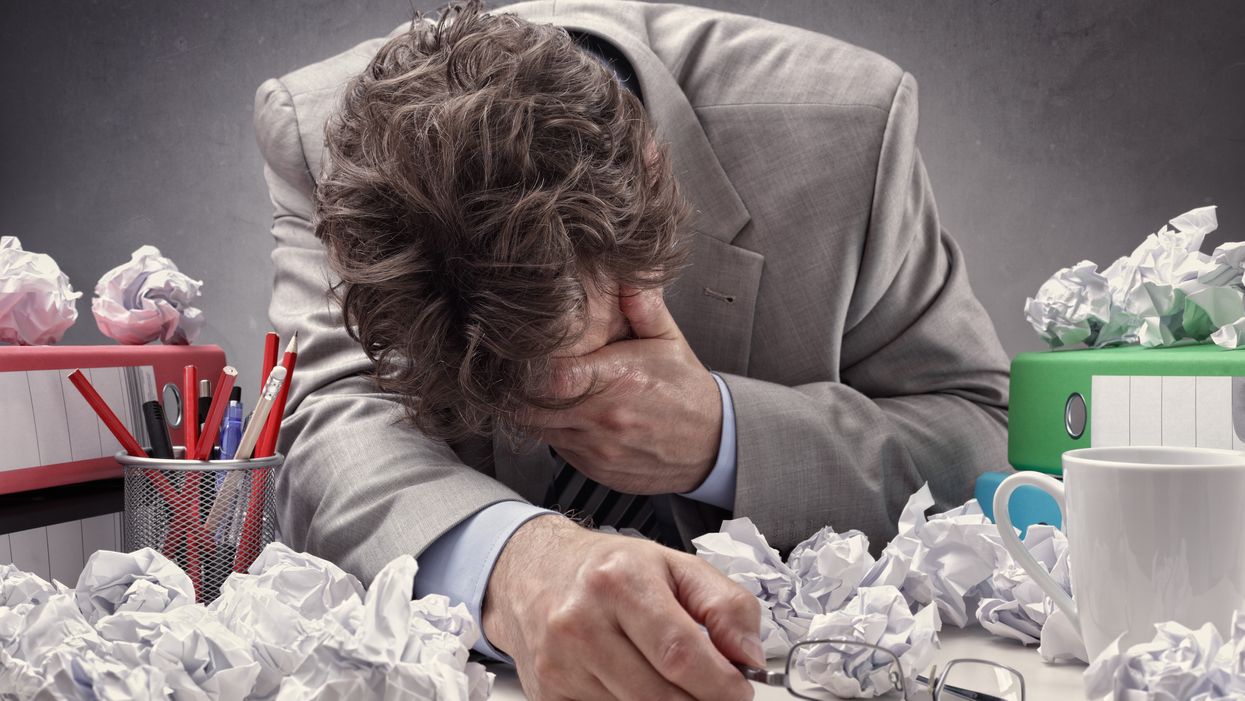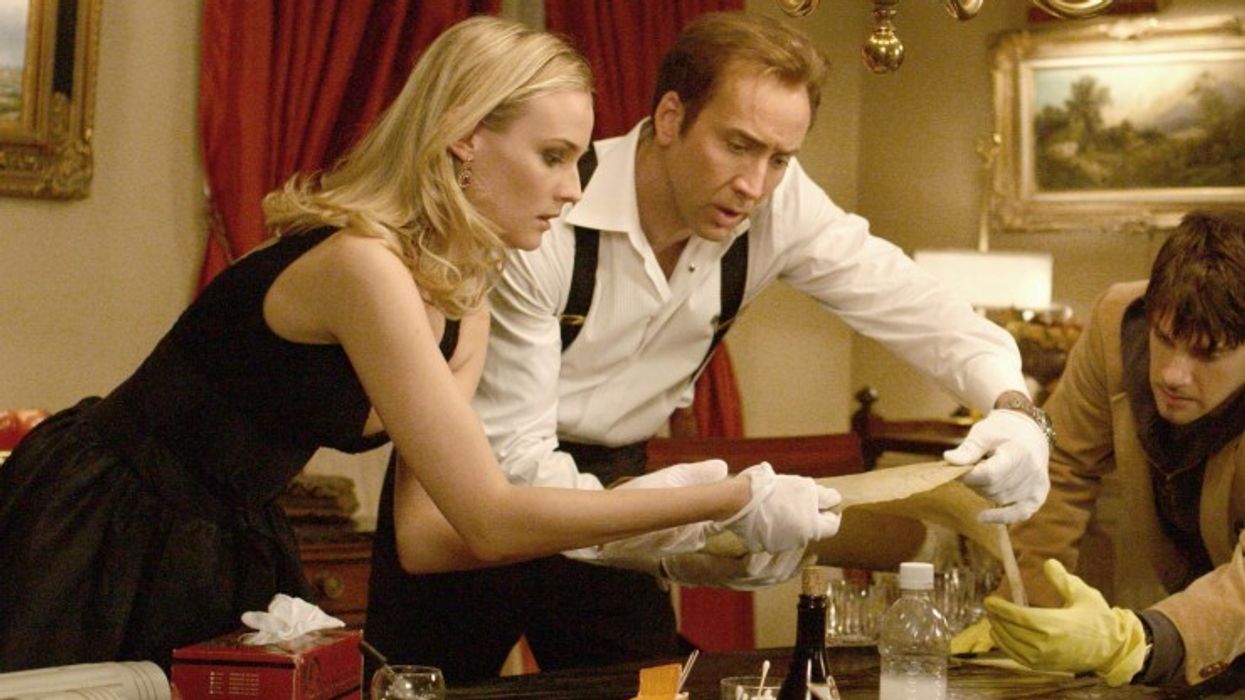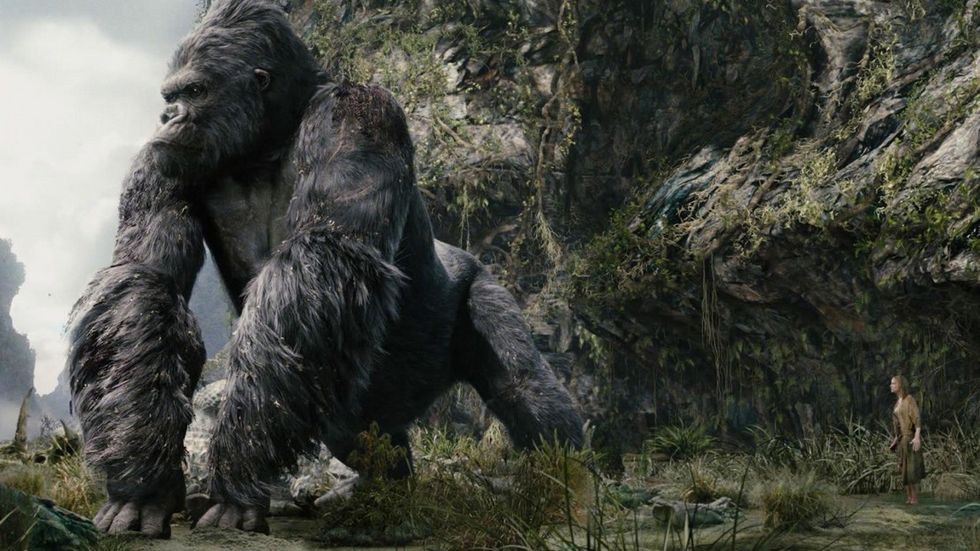Creatively Blocked? How to Go with the Flow & Get Back in the Zone
Life isn't fair (and I can prove it to you). While I can imagine a contingent of computer monitor-lit faces shaking their heads at that statement, perhaps clapping sarcastically at the depth of my insight, I can also imagine others shaking their heads at such wanton cynicism.

But, I said I could prove it to you. And I can. Life isn't fair, and it isn't because that's one of the first things I remember being told, and it's not fair to tell a small child that. QED. Now, I forget who delivered this devastating piece of information to me, but it seriously messed with my head -- partly because at that age, my fontanelle was still pretty open, and I was fairly easy to amaze.
But it's true! Gifted athletes practice their entire lives, sacrifice the normal pleasures of youth all for one chance at the brass ring, and then, when it comes time to do the one thing they've been rehearsing for possibly decades, they can't. They choke. Usually in front of millions of people. Many of whom will not be nice about this failure. Life isn't fair.
And it doesn't make sense, either. This lack of fairness or even explanation are, if you think about it, two good reasons to become a writer, or filmmaker, or any sort of artist; we have a nagging need to come to terms with the fact that, even as creative people who love the thing we do and do it for free (at least most of us, at the beginning), we frequently dread the prospect of sitting down at our desk and getting to work. Why? We love the thing we do, or else we wouldn't be making sacrifices to do it. Just sitting there in torment is sacrifice.
When psychologist Mihaly Csikszentmihalyi began to study the phenomenon of artists who were able to enter into prolonged states of ecstatic creation, a state he came to call "flow", after the sensation of being carried along by water, he discovered that, even though life isn't fair, you don't have to pay attention to it. By working to cultivate a state of flow, you can trick yourself into succeeding, in a sense. But it's not really cheating, if you're just taking what's yours. And your creativity and joy as an artist certainly belong to you. Check out Csikszentmihalyi's TED Talk below:
Much of the time, we're not even listening to ourselves, but what would we hear, if we were? Odds are, it would be the constant stream of consciousness that almost everyone's brain keeps up (some writers even take pride in it, claiming it's what makes them creative). But if you observe this voice (not a literal one--just the chatter in your head) you might find that it tends to get most distracting whenever it matters most: whether we're at the free throw line, in front of the blank page, or on set trying to compose a shot or direct a key performance.
What can you do about it (if anything)? For Csikszentmihayi, the answer lies in the concept of "flow," which he defines as "completely focused motivation," a state wherein the mind is "in the zone," where it seems as if we can't make a wrong move. But how to get there? And once there, how to stay in the flow?
Almost everyone has experienced this flow state before, in one way or another, but the tricky thing is, it's not the sort of thing you are aware of (at least not until it's gone, cf. Joni Mitchell) and if you can't remember how you arrived somewhere, how can you get yourself back there? And not only once, but consistently, so that getting into a creative state is so easy it becomes like breathing? It seems that competence, a comfort with the task you are attempting to make productive, is one key. According to his research, when there is a lack of correlation between skill and challenge, results are unfavorable. Oddly, this worked in both directions. Csikszentmihayi says:
When the challenge is greater than our abilities, we become anxious and potentially dead. When the challenge is significantly less than that of which we are worthy, we become bored, and potentially dead.
The 7 Conditions of Flow
- Ability to complete the activity
- Ability to concentrate on the activity
- Clear goals within the activity
- Direct feedback
- A sense of agency, control
- Lessening of anxiety
- Altered sense of time
Not surprisingly, flow is not a new concept, and has analogues in spiritual and philosophical thought going back millennia. Studies have shown that meditation is an excellent way to bring people to a greater sense of calm, and it seems to do that by settling the mind's focus on itself, so that a person is able to observe the constant chatter inside of their own heads, chatter that produces anxiety, anxiety that defeats flow, and creativity. Hence, it's not that surprising to hear of schools of Buddhism where the concept of mindfulness, or being "aware of your actions and to be fully absorbed in each one" are promoted. When you're sleeping, sleep. When you're eating, eat. When you're writing, write. Don't try to think ahead, or behind, only on the present moment. This list of other triggers for the flow state might be helpful to you, too. And, for many creative artists, especially, a state of almost auto-hypnosis seems to be important.
That is, many highly creative people find that when they are in the midst of a project, routine becomes of paramount importance. Japanese novelist Haruki Murakami achieves something that sounds very much like flow state by a rigorous concentration on routine:
When I’m in writing mode for a novel, I get up at 4:00 am and work for five to six hours. In the afternoon, I run for 10km or swim for 1500m (or do both), then I read a bit and listen to some music. I go to bed at 9:00 pm. I keep to this routine every day without variation. The repetition itself becomes the important thing; it’s a form of mesmerism. I mesmerize myself to reach a deeper state of mind.
Maybe, when we become obsessed with something, that is, with achieving something, we become just as obsessed with failure, and our brains fill up with (negative) thoughts. And of a sudden, the thing we do better than anything else is the hardest thing for us to do. It's at times like these, Csikszentmihalyi seems to say, that we get in our own way, become our biggest enemy. As has been borne out by spiritual wisdom as well as the habits of highly creative individuals (this book on the daily habits of creative people is full of diversity, but more than that, it's full of--routine), by doing the same thing, at the same time, as well as following basic principles, lots of people manage to stay in their peak "flow" state, and part of this ability comes from tricking yourself.
Don't worry, though. It's okay to trick yourself. After all, life's not fair.
Source: TED Talks



 'Indiana Jones And The Temple Of Doom'Credit: Paramount Pictures
'Indiana Jones And The Temple Of Doom'Credit: Paramount Pictures









